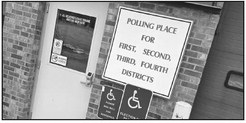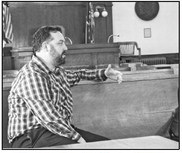End high-stakes testing for teachers


Star News
Editorials
At a time when school districts are struggling to find qualified applicants to fill teaching positions, the state of Wisconsin should do away with a fundamentally flawed high-stakes test that is serving as a barrier preventing good teachers from being in classrooms.
Starting in January 2014, Wisconsin required elementary teachers and special education teachers to score at least a 240 out of a possible 300 on the Foundations of Reading Test (FoRT).
The purpose of the four-hour long test is “to ensure potential reading teachers and specialists are able to adequately demonstrate their knowledge and skills in reading instruction.”
In practice, the test has the same fundamental flaw of other high-stakes testing in that it is more reflective of the individual’s test-taking and memorization skills than it is a measure of how well they can understand and use the knowledge in their profession.
In the first year it was required, about 75% of the people taking the test passed. This year only 56% of the people taking the test passed.
When a quarter of the people taking a test don’t pass, it is a sign of a tough test, when nearly half of the people taking the test fail, that is a sign of a broken test.
One of the factors in the explosion of “emergency” licenses in recent years is due to people who have completed education degrees but who did not pass the FoRT and therefore can’t get their teaching license. Some go on to pass the test on their second, third or fourth try. Others do not, and are forced to leave their jobs when their license time expires.
A major complaint of those who have taken the test is that teachers don’t teach in a vacuum. In a real-world setting, teachers have access to resources and materials and the knowledge of their peers and administration to refer to in helping students learn.
Rather than setting prospective teachers up for failure, Wisconsin should look to the model of the Wisconsin State Bar Exam where those who graduated from the University of Wisconsin law school are waived from having to take the test. This longstanding diploma privilege has done nothing to weaken the professionalism and quality of attorneys in the state.
Wisconsin should implement a similar diploma privilege for those completing accredited teaching programs, including second-career teaching programs through University of Wisconsin System schools.
At the same time, the state needs to examine the value of using high-stakes testing as a barrier to access to the teaching profession in general. Knowing the science behind helping a student learn is not equivalent to memorizing resource materials or being able to regurgitate data on demand.
Teaching is a skill that is honed by time and experience and not determined solely by how well an applicant scores on a high-stakes, high-pressure test.




